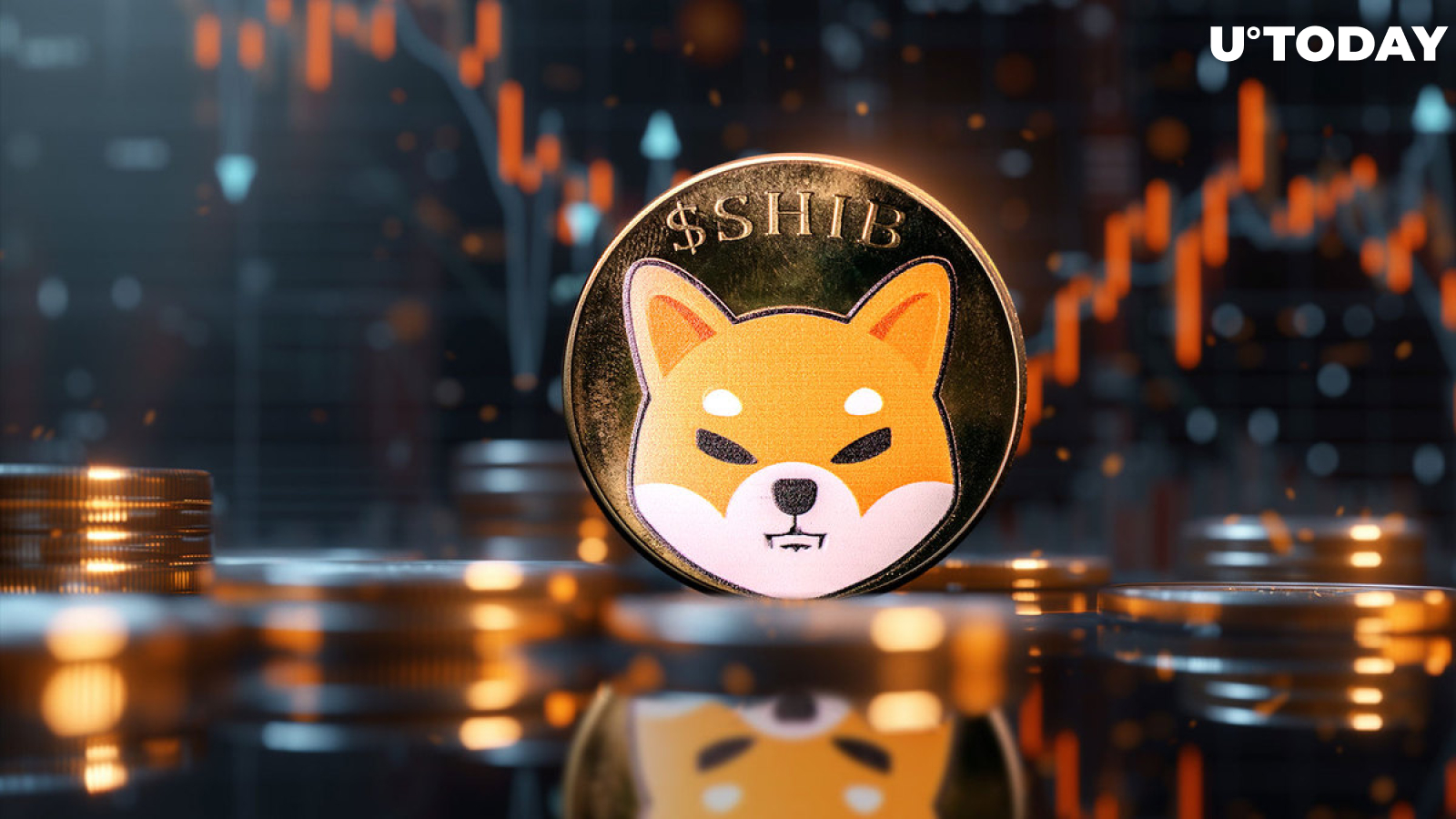Nvidia Earnings Soar But AI Cryptos See Unexpected Dip
Nvidia's impressive first-quarter earnings report led to a 6.06% spike in its stock price. Despite this, AI-related crypto tokens like Render (RNDR) saw their prices dip over the past 24 hours. Nvidia plans to build on its Q1 success and its CEO Jensen Huang announced the company's next AI ambitions, including AI chip production and collaborations with tech giants. Meanwhile, Ethereum co-founder Vitalik Buterin and Baidu CEO Robin Li recently shared some of their own concerns about AGI.
Nvidia's Q1 Success
Despite Nvidia’s very impressive first-quarter earnings report, the price of artificial intelligence (AI)-related crypto tokens ended up briefly tumbling, which was a big blow to traders’ high expectations.
Nvidia produces chips that are used to train and deploy AI models, and saw its Q1 revenue increase by 18% from Q4 2023 and surge 262% from a year ago. The earnings report was released after the New York Stock Exchange (NYSE) market closed on May 22, and caused Nvidia’s stock to spike 6.06% in after-hours trading, reaching $1,007.
Despite these positive results, some AI token traders were disappointed that this did not lead to a similar increase in AI token prices. Within five hours of the earnings report, Render (RNDR), an Ethereum-powered platform for decentralized graphics processing unit rendering, saw its price decline by 12%, dropping to $10.38. At press time, RNDR’s price stood at $10.51.
Crypto research firm Santiment also pointed out that a whale moved around $52.1 million worth of RNDR tokens to an unknown wallet on May 22. This could suggest that large RNDR holders are anticipating a “sell the news” event.
On the other hand, pseudonymous crypto trader D0C Crypto pointed out that RNDR didn’t see an increase in its price until two days after Nvidia’s previous earnings report. After Nividia’s Q4 earnings report was released in February, RNDR’s price rose by 38% in 48 hours.
If history repeats itself, RNDR could rise above $15 within the next 48 hours from its current price.
Other AI-related tokens also experienced declines over the past 24 hours of trading. The Graph (GRT), an indexing protocol for optimizing blockchain data queries, saw its price drop by 0.05% over the past day of trading. Fetch.ai (FET) declined by 2.73% over the same time period, while SingularityNet (AGIX) recorded a 2.81% dip.
Despite this, traders are still optimistic that Nvidia’s strong performance will eventually positively impact the wider crypto market. Multiple crypto analysts shared that they believe Nvidia’s success will lead to positive outcomes for both stocks and the crypto market.
Nvidia's Next AI Wave
Nvidia also has no plans to slow its artificial intelligence ambitions after its record-breaking first-quarter revenue of $26 billion. Five years ago, Nvidia’s market cap was $100 billion, but it is now the third largest public company globally, and just 17% away from surpassing Apple.
According to Nvidia founder and CEO, Jensen Huang, the next industrial revolution has begun with a shift to new types of data centers, referred to as “AI factories” that are designed to produce artificial intelligence. Huang firmly believes Nvidia is more than ready for its next wave of growth and announced that the new Blackwell platform, aimed at trillion-parameter-scale generative AI supercomputing, is in full production.
Nvidia will now produce AI chips annually, very different from its previous two-year cycle, which saw the release of Ampere in 2020, Hopper in 2022, and Blackwell in 2024. Huang confirmed this new production rhythm during the firm’s earnings call, and even hinted at a new chip following Blackwell.
Nvidia also revealed expanded collaborations with Amazon Web Services (AWS), Google Cloud, Microsoft, and Oracle to boost generative AI innovation. On top of all of this, the company introduced new AI performance optimizations and integrations for Microsoft Windows, designed to maximize performance on Nvidia GeForce graphics cards and PCs.
Additionally, Nvidia announced new AI gaming technologies, including Nvidia ACE and Neural Graphics. It seems like the fact that first-quarter gaming revenue was $2.6 billion, down 8% from the previous quarter, won’t stop Nvidia.
Nvidia plans to continue pushing the boundaries for AI across various industries, including automotive, robotics, healthcare, and semiconductor manufacturing.
Vitalik Buterin Warns of AI Risks
Some people are taking a much more cautious approach to AI. Ethereum co-founder Vitalik Buterin recently shared some of his concerns about the risks associated with “superintelligent” artificial intelligence, especially in light of leadership changes at OpenAI.
On May 19, Jan Leike, OpenAI’s former head of alignment, resigned because he got frustrated with the company’s core priorities. According to Leike, safety culture and processes had been sidelined in favor of developing "shiny products," with a particular focus on artificial general intelligence (AGI). AGI, which is anticipated to match or surpass human cognitive capabilities, has raised many concerns among industry experts who believe the world is not prepared to manage these powerful AI systems just yet.
Buterin seems to agree with these concerns. In an X post he advised against rushing into AGI development. He also touched on the importance of open models running on consumer hardware as a safeguard against a future where a few large corporations could control and mediate most human thought. Buterin argued that models like this pose a much lower risk of catastrophic outcomes compared to corporate or military-controlled AI.
The Ethereum founder recently commented on AI on May 16 when he stated that OpenAI’s GPT-4 model passed the Turing test. He also referred to research indicating that most people can no longer distinguish between interactions with humans and machines.
Buterin is not alone in his mistrust of super sophisticated AI. In fact, the UK government has also raised concerns about Big Tech’s dominance in the AI sector.
In response to these developments, groups like 6079 are advocating for decentralized AI to make sure it remains democratized and not monopolized by large tech companies.
AGI Over a Decade Away?
Despite widespread concerns about the very quick development of AI, Robin Li, the co-founder and CEO of Baidu, believes that AGI is still at least a decade away. Speaking at Viva Tech Paris 2024, Li shared his belief that today’s AI models are far from achieving AGI and that the path to intelligence like that is still very uncertain.
According to Li, the focus should be on using AI technology to address pressing societal issues, as this approach will ultimately lead to AGI. By solving important human problems, foundational AI models can be improved, bringing them closer to AGI.
While the realization of AGI resembling human intelligence might take another decade, Li suggested that these advancements could tackle concerns related to the current population decline. He pointed out that generative AGI could even potentially match the productivity of a billion people, which could greatly improve everyone’s quality of life.
Elon Musk also shared his concern about population decline. In an X post from August of 2022, Musk stated that population collapse due to low birth rates poses a much bigger risk to civilization than global warming. Worldometer data shows that the yearly growth rate of the global population fell to 0.91% in 2024, down from 1.28% in 2004.





